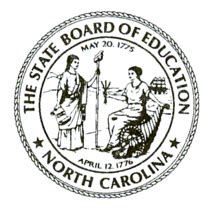SPINDALE (Jan. 20, 2023) — Twenty-two students from East Rutherford High School learned the ins […]
Category: Education
Treasurer Folwell Delivers More Than Half-Million Dollars at NC Board of Education
Stock Proceeds and Dividends Associated with Old Insurance Policy Found in NCCash.com RALEIGH, NC State […]
Progress Continues on Effort to Revise NC School Grading Model
Raleigh, NC Nov 7, 2022 Progress continues for the advisory group of school leaders who […]
State Awards $30M for Clean School Bus Replacements, Including 43 New Electric School Buses
Raleigh Oct 17, 2022 More than $30.1 million from the N.C. Volkswagen Settlement Program will […]
Overmountain Men, Key Reinforcements in the Battle of Kings Mountain, to be Recognized with Highway Historical Marker in Polk County
RALEIGH Sep 28, 2022 Patriot militiamen encamped in Polk County changed the course of the […]
Hillbillyland: Myth & Reality of Appalachian Culture
An exhibit examining the myths and misconceptions behind the mountain “hillbilly” stereotype will open Saturday, […]
Seven students graduate from Basic Law Enforcement Training
Isothermal’s 83rd BLET class graduated earlier this week. Pictured are Rutherford […]
RC Architect James Vester Miller recognized in a walking trail and new website
Press release from Buncombe County via Mountain Express The historic contributions and impact of renowned […]
Back to School Safety: Know the rules of the road Commissioner Causey reminding public of importance of bus safety
RALEIGH As students and teachers head back to class, Insurance Commissioner Mike Causey, who also […]
NC charter school managed by national for-profit firm cited for failure to serve students with disabilities
By Greg Childress Cardinal Charter Academy (Photo: Google maps) State says Cary’s Cardinal Charter Academy […]









